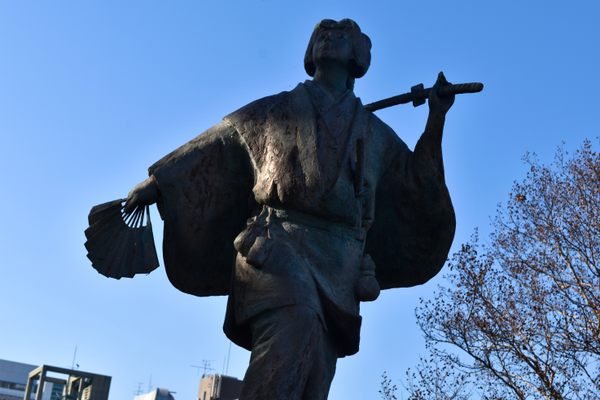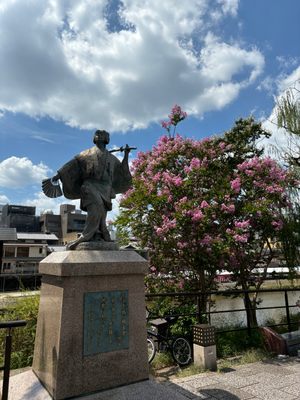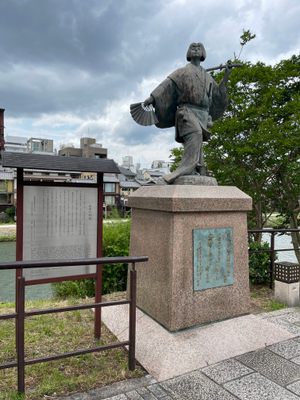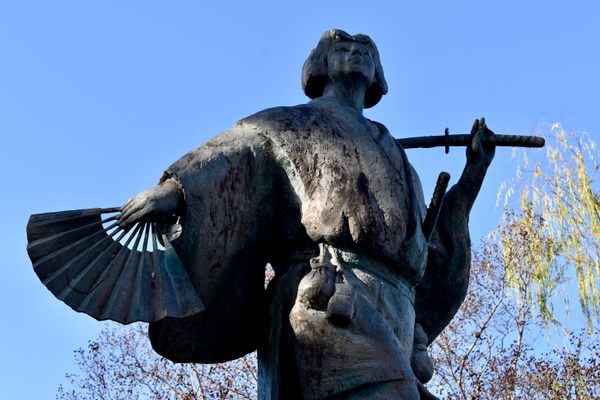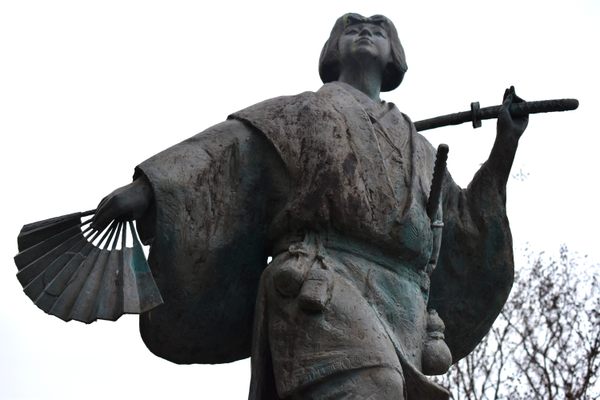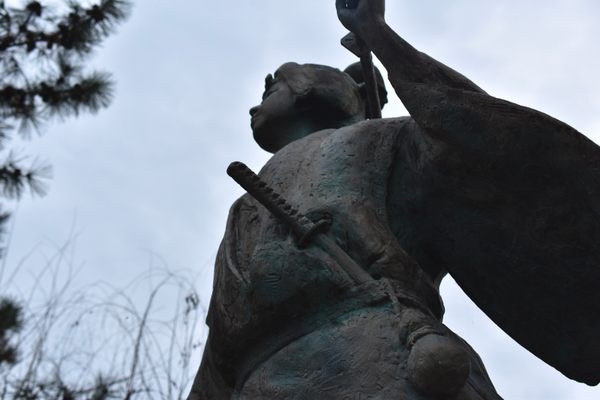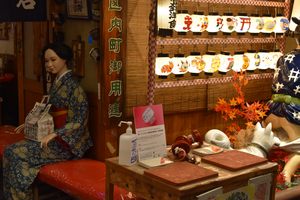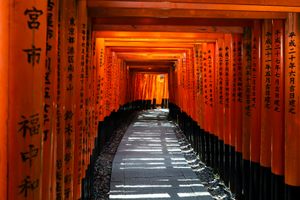About
Kabuki is a traditional form of Japanese theater famously recognized by UNESCO as an intangible cultural heritage, known for its highly stylized performances, opulent costumes, and makeup. Although it’s usually performed by an all-male cast today, it was originally created by a woman named Okuni.
Born in the Izumo province in 1572, Okuni grew up to be a priestess at the ancient shrine of Izumo-taisha, gaining popularity as she toured across Japan to promote the shrine in the early 1590s. It has been recorded that a girl named Kuni performed a form of dance called yayako-odori in 1600, which developed into a new art called kabuki-odori three years later.
In kabuki-odori, Okuni performed as a samurai while her husband portrayed a teahouse waitress, both acting in drag. The rest of the troupe also performed in drag, creating a sensual, topsy-turvy atmosphere, culminating in a climactic frenzy joined in by the audience. The word kabuki means “tilting,” and as kabuki-mono it referred to a bizarrely-dressed person, synonymous with yakuza. Later, the spelling changed from 傾き to 歌舞伎, each of the letters standing for “song,” “dance,” and “art,” respectively.
No records about Okuni have survived following her performance at Edo Castle in 1607, leaving the rest of her life unknown in history. Kabuki-odori, on the other hand, quickly became popular in “pleasure districts” all across Japan, with the courtesans dancing in drag. It wasn’t long, however, before it was banned by the shogunate as part of its misogynistic policies forbidding women to perform in entertainment.
Today, in the Gion district of Kyoto stands a statue of Izumo-no-Okuni, across the street from the Minami-za theater, which was established during the Genna era (1615-1624).
Related Tags
Hidden Japan: Sado Island, Nara & Kyoto
Explore a different side of Japan.
Book NowCommunity Contributors
Added By
Published
June 13, 2023
